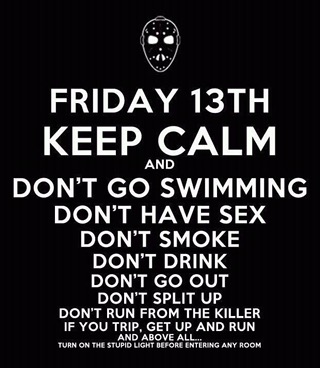It’s one of those days when people are warned not to get out of bed but where does the unlucky day come from.
Some people trace the origins of the 13th back to the bible.Jesus was crucified on a Friday and there were 13 guests at the Last Supper the night before his crucifixion.
Others believe it’s originates in the fourteenth century when 1307, when on a Friday the 13th, the French king gave the orders to arrest hundreds of Knights Templar.
The superstitions surrounding it arose in the late 19th century not helped by the 1907 book, Friday the Thirteenth, by American businessman Thomas Lawson, may have further perpetuated the superstition.In the novel, an unscrupulous stock broker takes advantage of the superstition to create a Wall Street panic on a Friday the 13th.
Of course the number thirteen itself is thought unlucky, many streets do not have a number 13, many buildings miss out the thirteenth floor.That almost certainly had its origins in the number of disciples at the last supper, the thirteenth being Judas.
The fear of Friday the 13th is called friggatriskaidekaphobia, from the Norse God Frigg, the goddess of wisdom after whom Friday is named and there is quite a bit of evidence that people adhere to it.
Scandinavians believed 13 signified bad luck because their 13th mythological demigod Loki was an evil one who brought great misfortune upon humans.
The price of air travel alls on the day as less people fly, fewer house deals are concluded and less people want to get married.
There are superstititions surrounding the day. Calling a doctor for the first time on a Friday is a certain omen of death in certain parts of the country
So is it unlucky? Well there is little evidence.On Friday 13th Sept 1940 Buckingham Palace was hit by five German bombs. In 2010, lightning struck a 13-year-old Suffolk boy on Friday 13th at 13:13.
There will be two Friday the 13ths this year with one falling on January 13 and the other on October 13.







